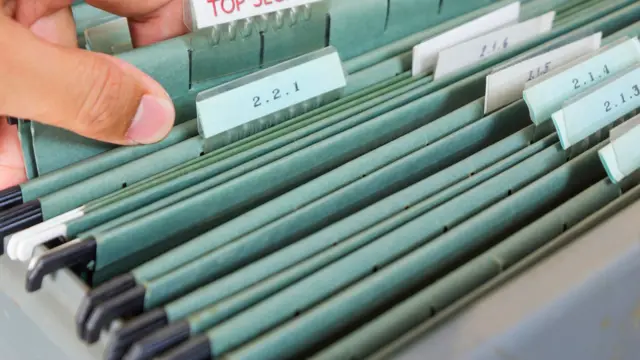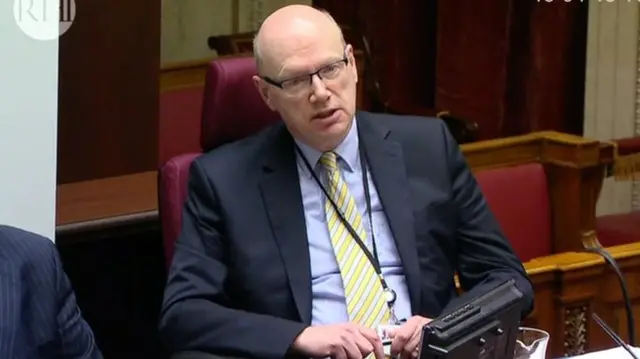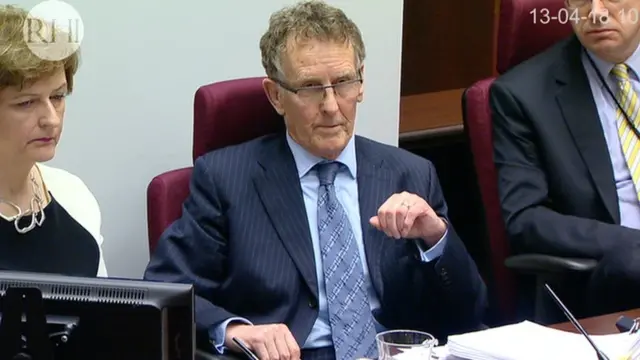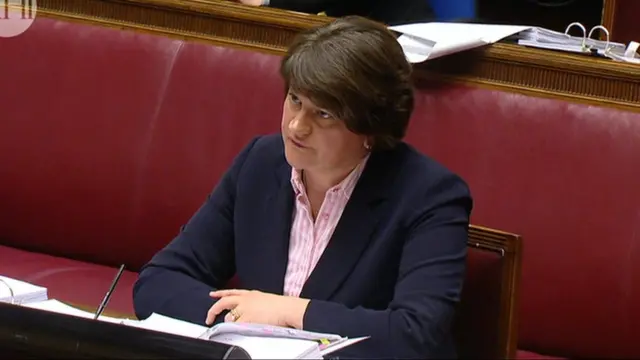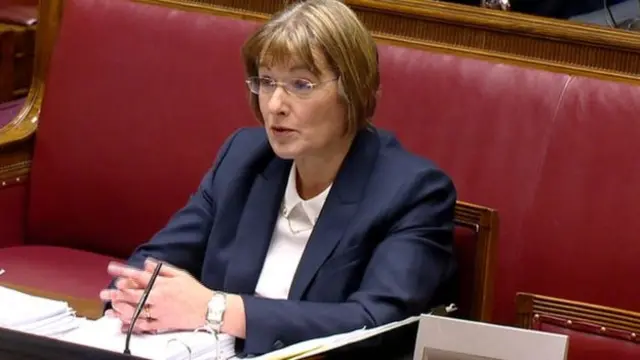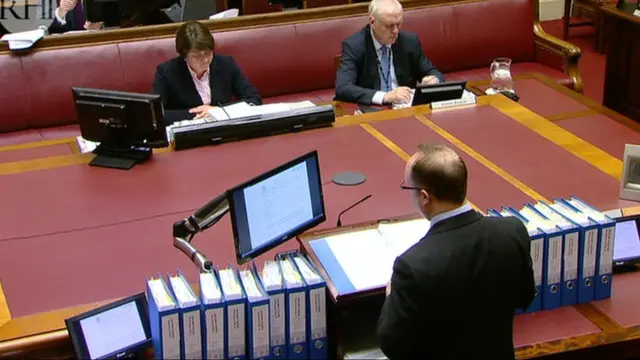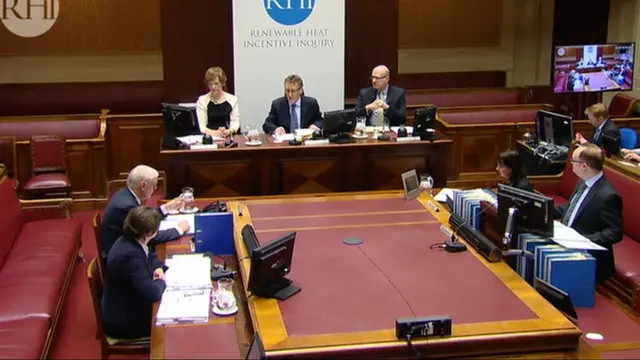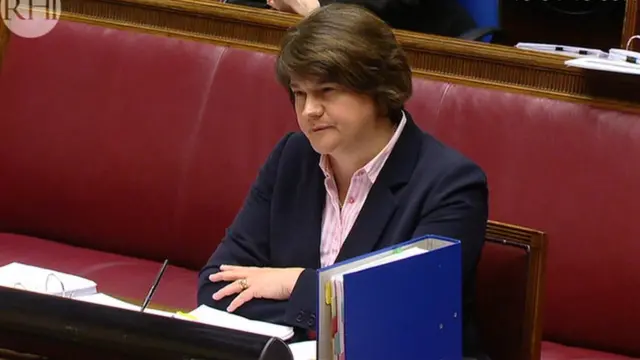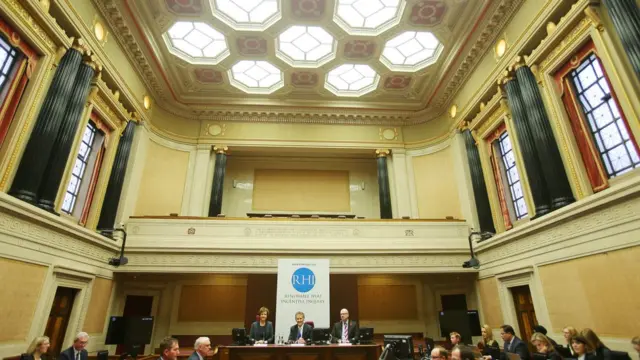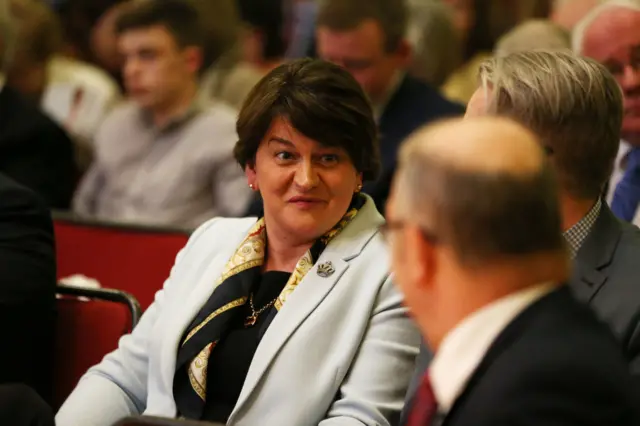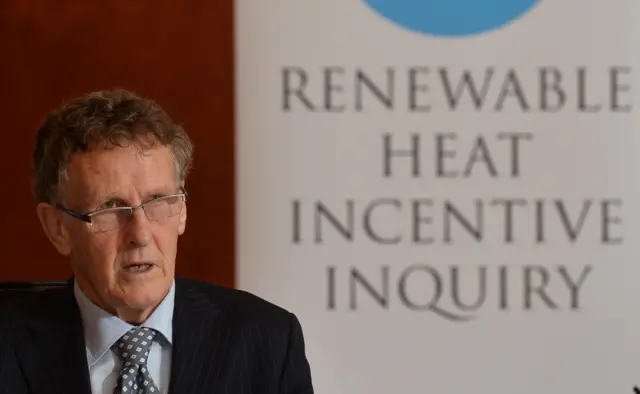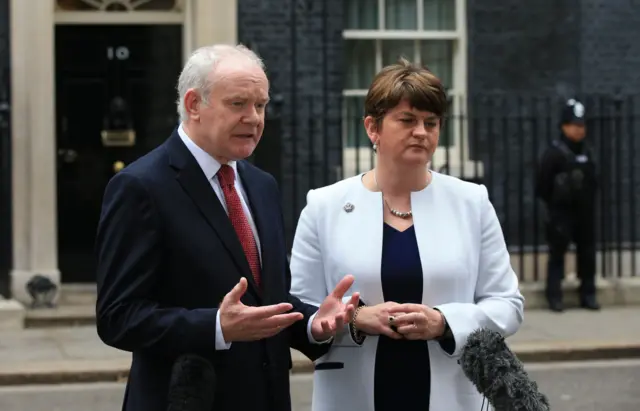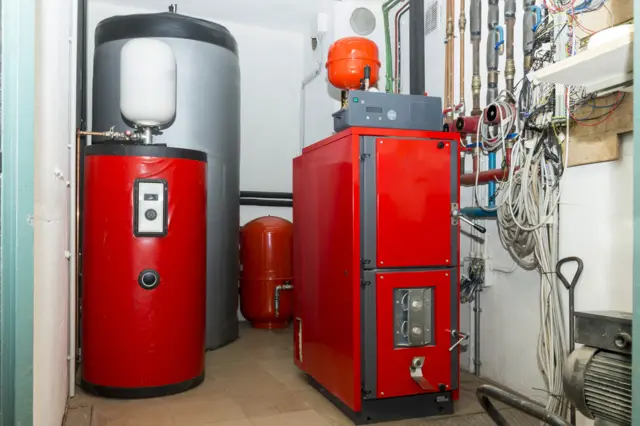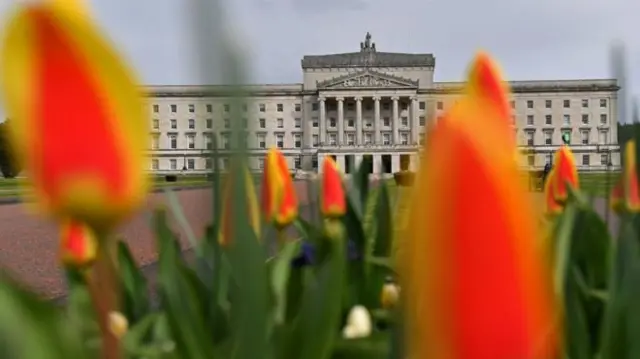'Blank spaces in RHI impact assessment'published at 11:59 BST 13 April 2018
Mrs Foster signed off on an impact assessment for the RHI scheme - it outlined the benefits, risks, and costs and is presented to the inquiry.
Mr Scoffield points to a section with two boxes for costs and benefits but neither is filled in with any figures, and those were the aspects considered in the CEPA report.
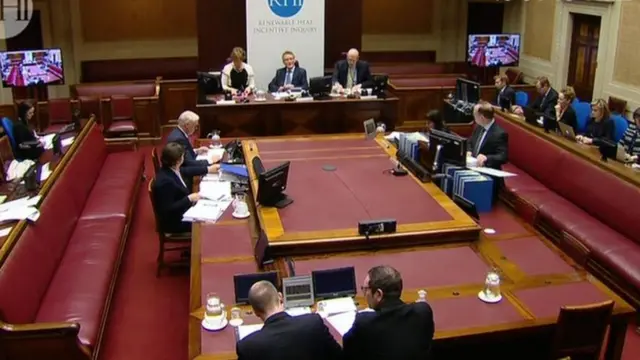 Image source, RHI Inquiry
Image source, RHI Inquiry"How were you able to indicate that you were satisfied abut the likely costs when the impact assessment you were given doesn't outline them?" asks Mr Scoffield.
Mrs Foster says she can only presume the boxes were left blank "because we hadn't had the final CEPA report" by the time she signed off on the document - only a draft had been published at that point.
She says she thinks she would have signed the risk assessment based on "the prose behind that page" and on the submission.
